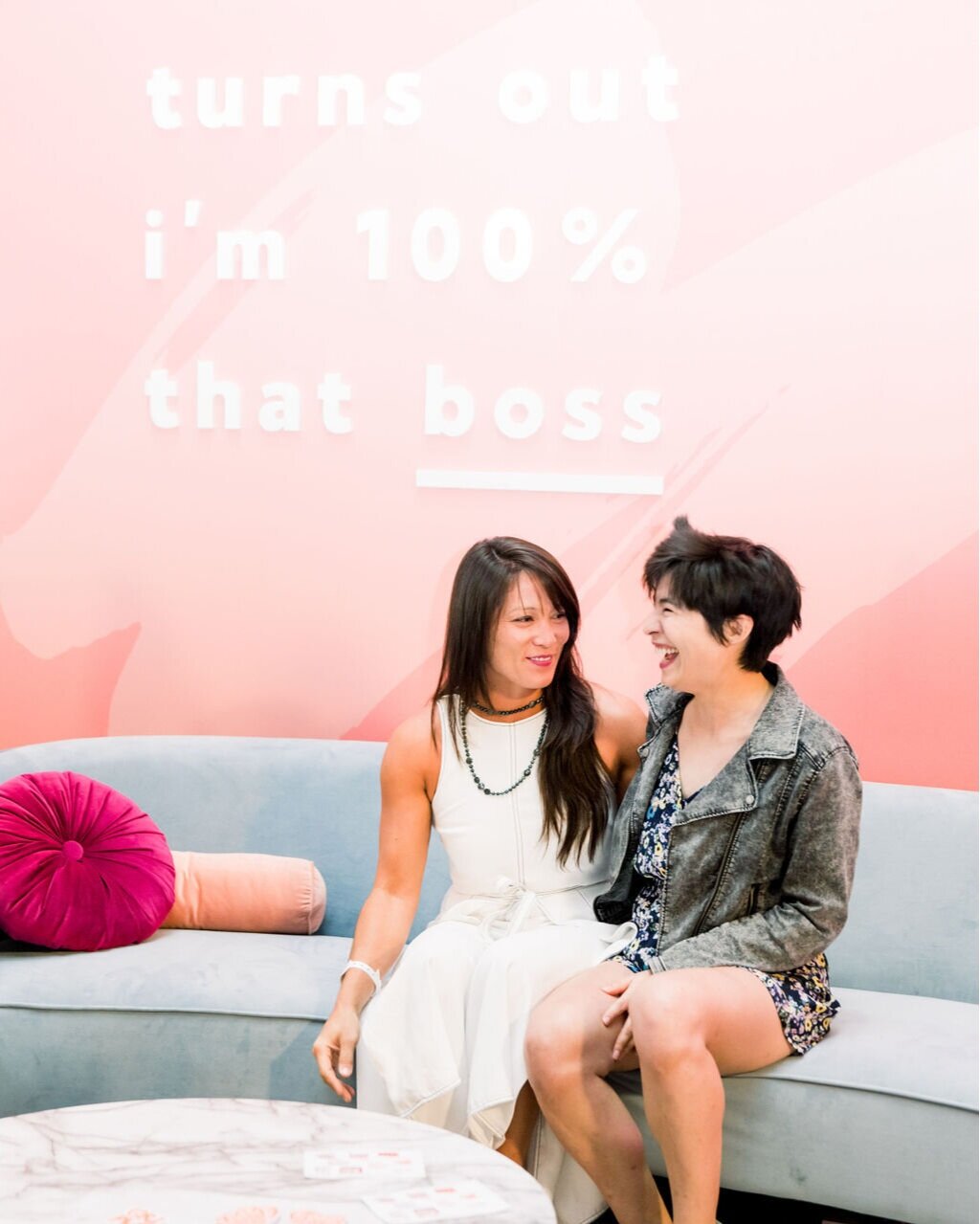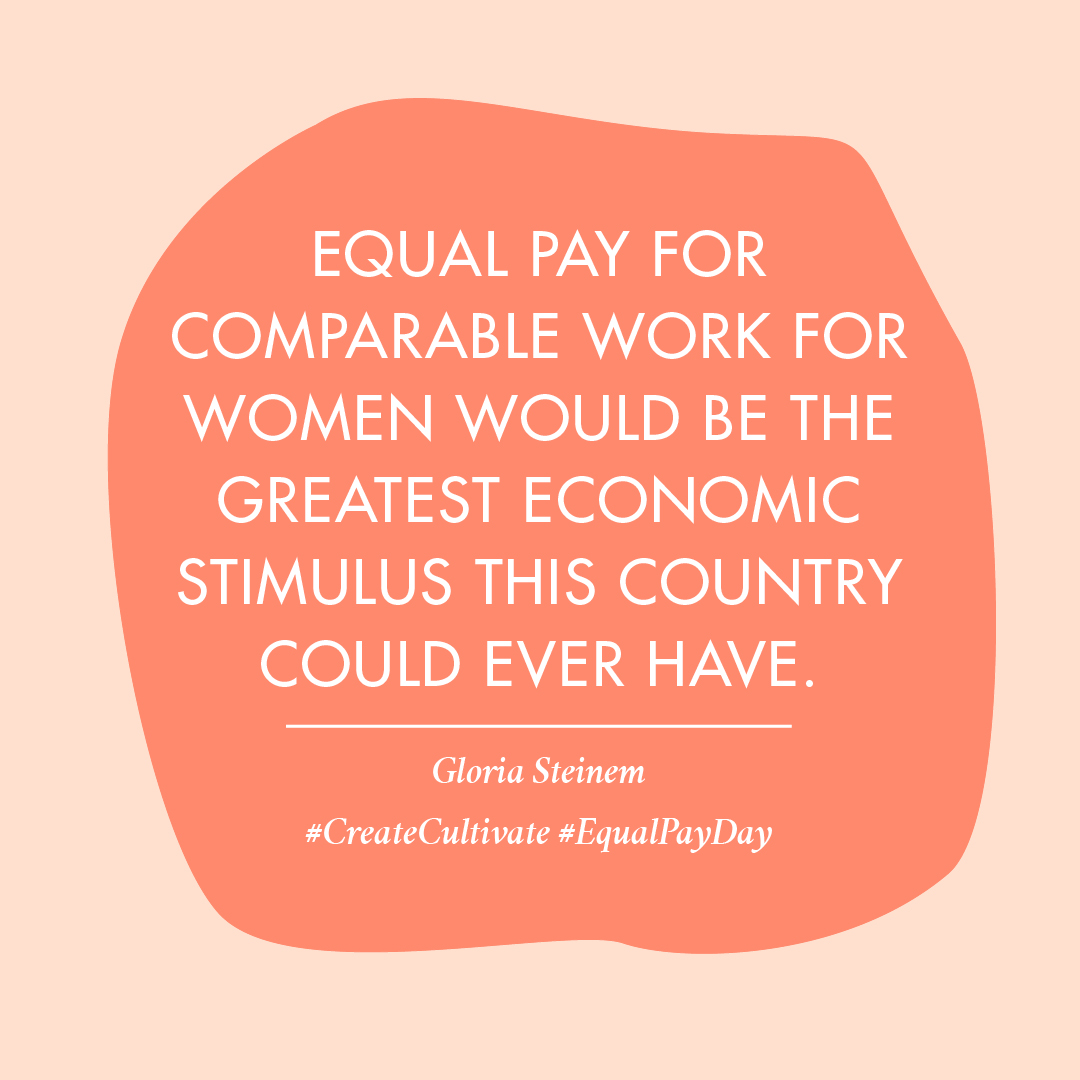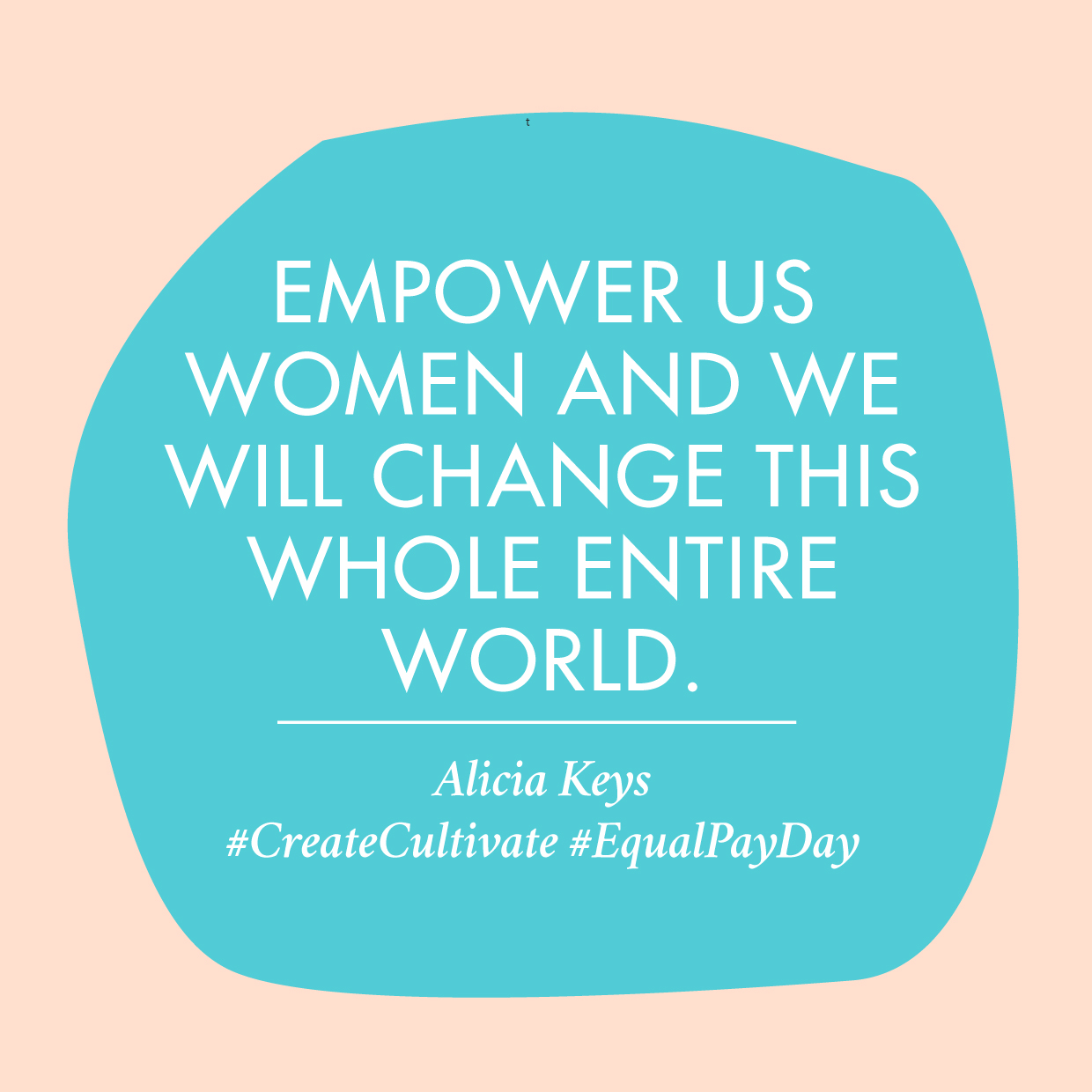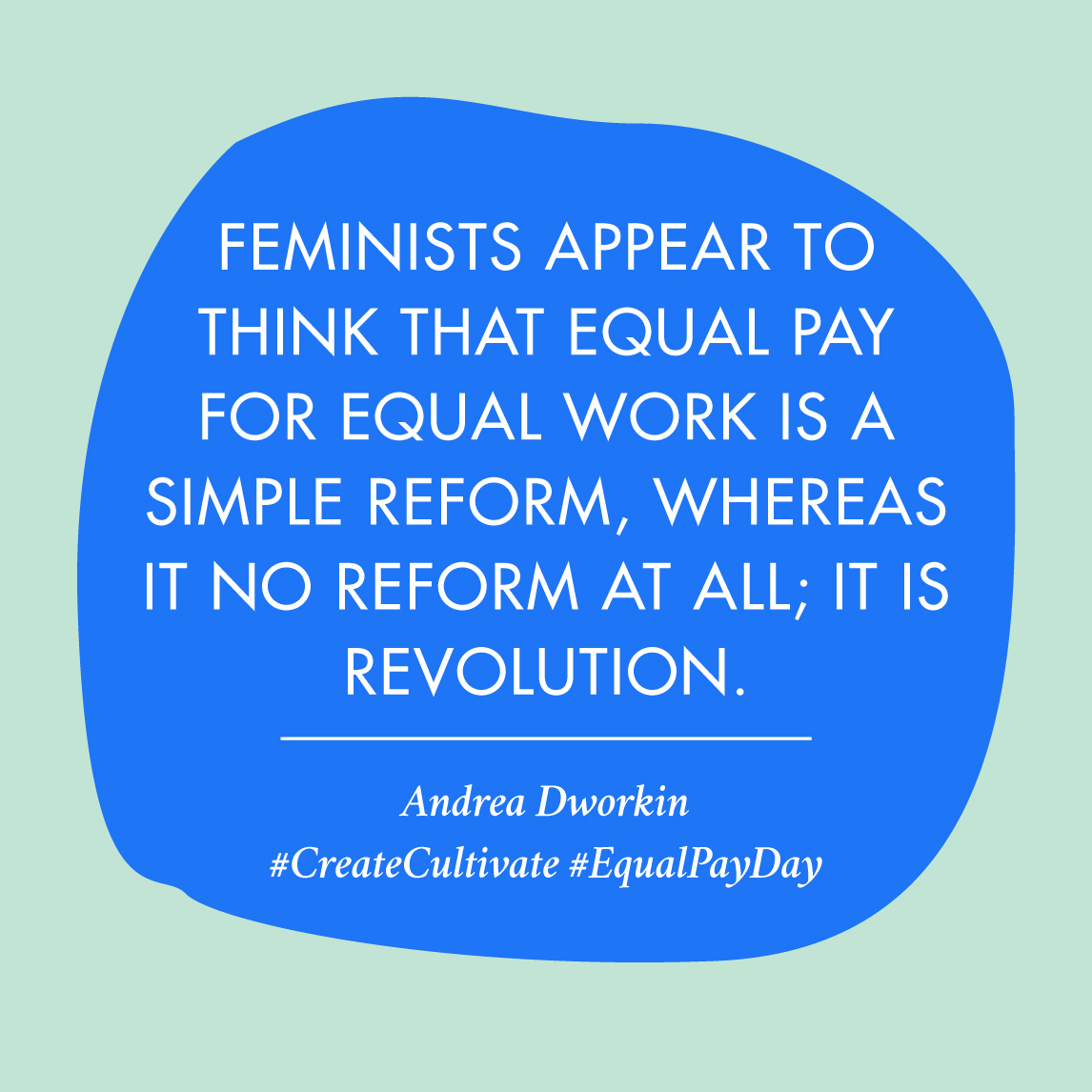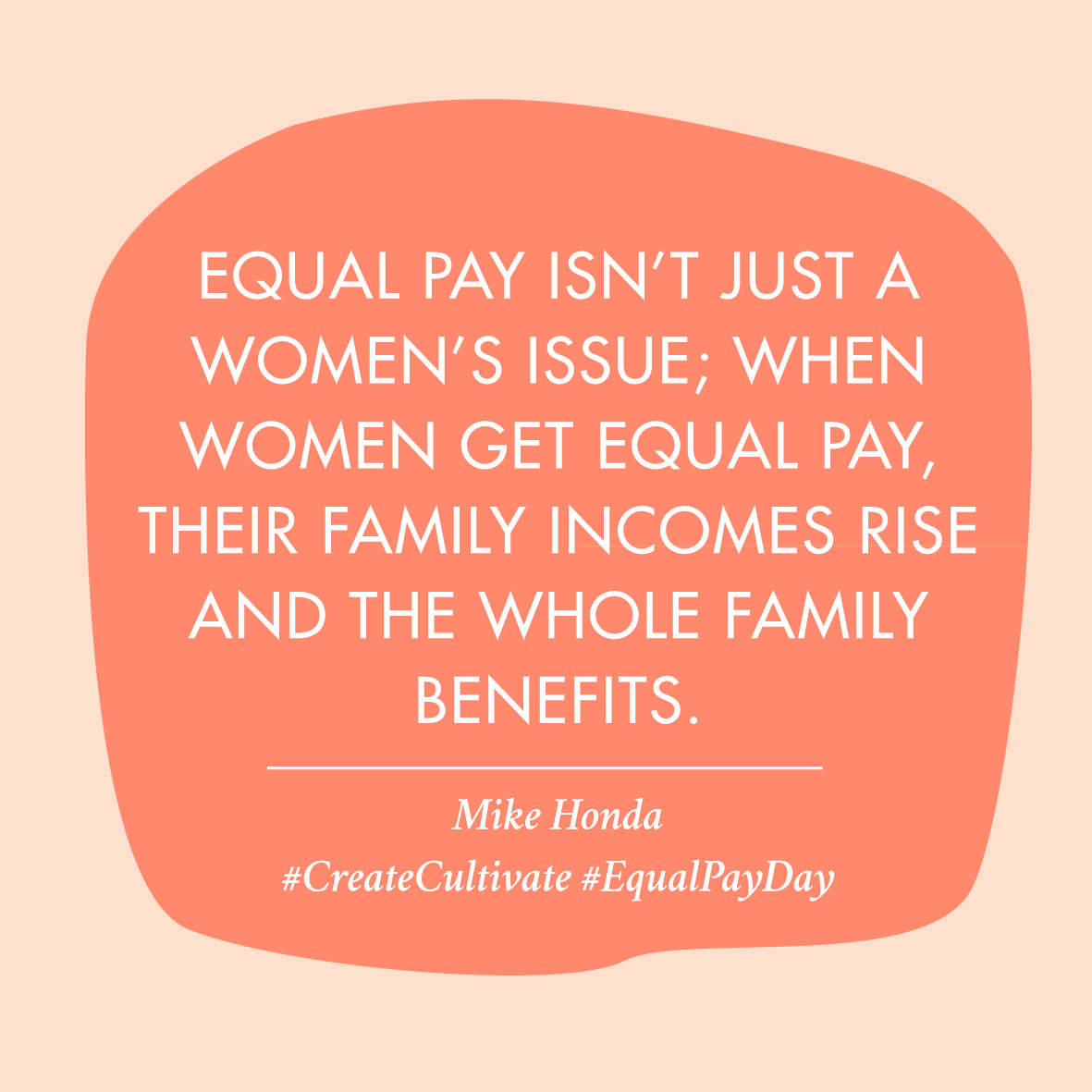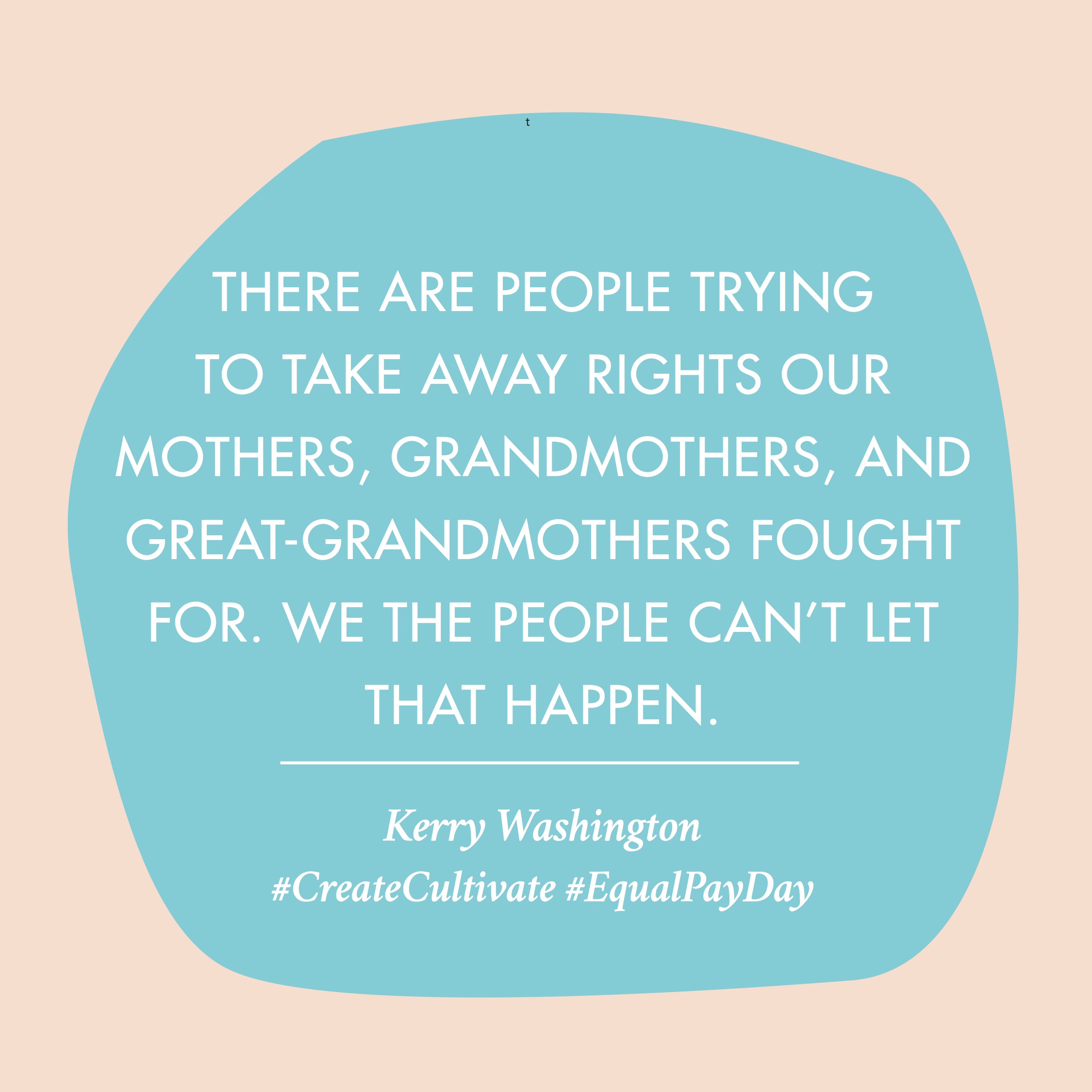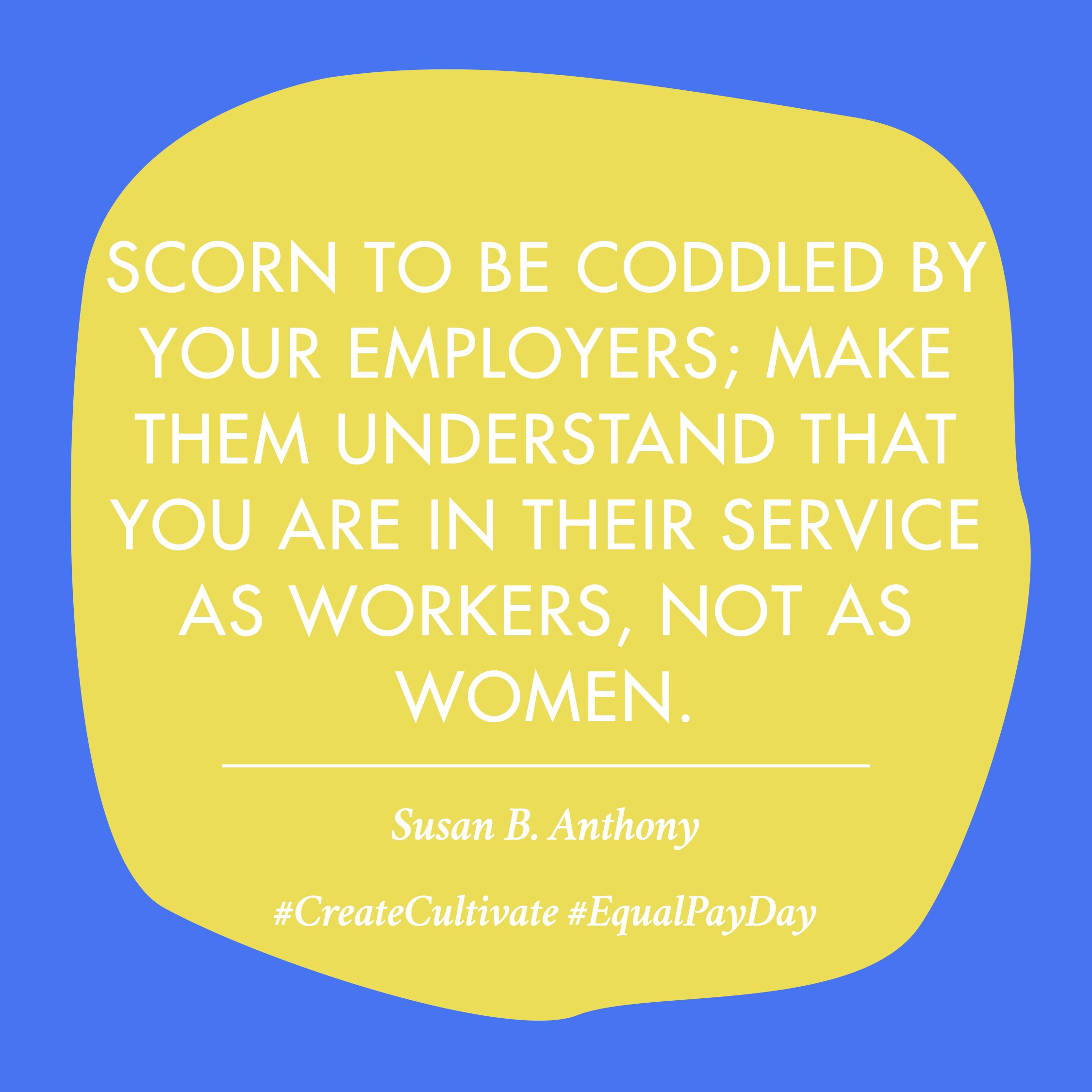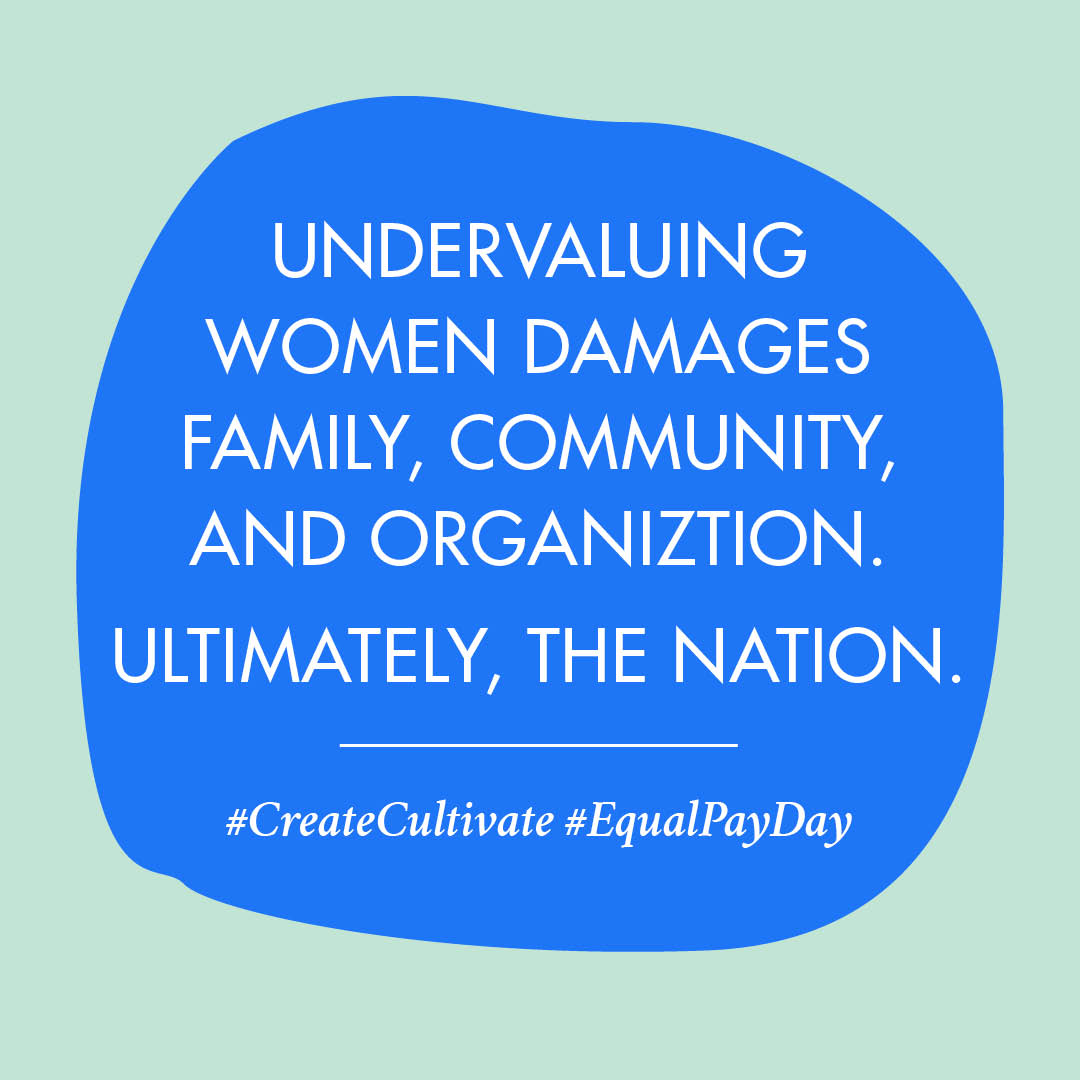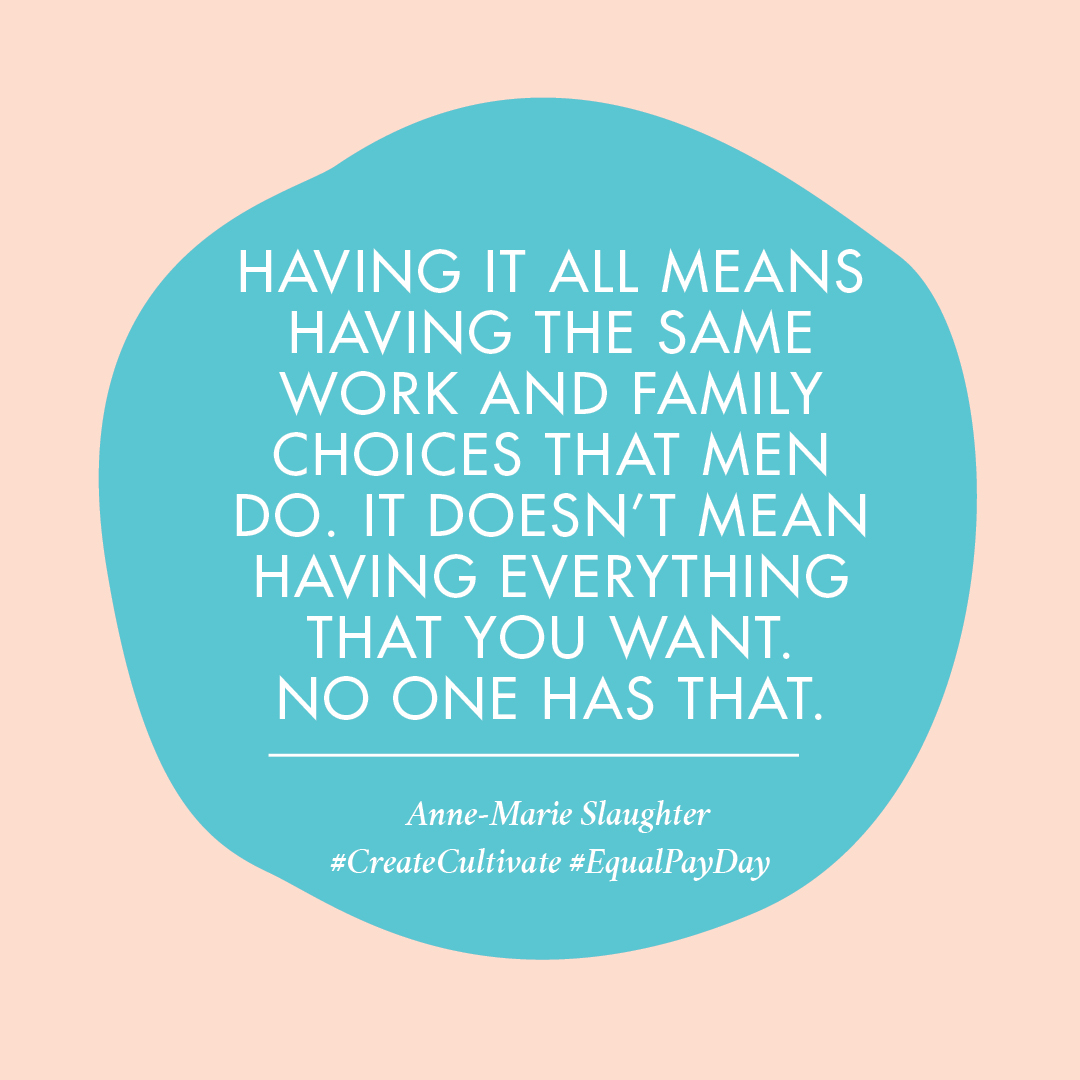“Always Have a Counter Offer”—and More Money Advice From Our Equal Pay Day Summit
Here’s what you missed.
Photo: Smith House Photo
Equal Pay Day symbolizes how far into the year women would have to work, on average, in order to match what men earned the previous year. In other words, women have to work an extra 83 days into 2021, on average, in order to get paid the same amount of money a man made in 2020. But the keyword here is “average.”
When you break the gender pay gap down by race and ethnicity, it's even wider for Black women, Indigenous women, and Latina women. To put it into perspective, this year Equal Pay Day for Black women is on August 3rd, on September 8th for Indigenous Women, and on October 21 for Latinas. Although the gender pay gap is narrower for Asian American and Pacific Islander women, AAPI Equal Pay Day—which fell on March 9th this year—was still 68 days further from December 31 than it should be.
At our Equal Pay Day Summit presented by Mastercard, we hosted a thoughtful discussion on pay equity with Blake Gifford, an attorney and content creator, Kameron Monet, an attorney and content creator, Kelly Joscelyne, the chief talent officer at Mastercard, and Brenda J. Schamy, partner and co-founder of DiSchino & Schamy, PLLC.
ICYMI, we’ve jotted down all the mic-drop-worthy moments for you, but if you’re still experiencing FOMO, you can join C&C Insiders to get access to all of the workshops, mentor sessions, panels, and keynotes from our Equal Pay Day Summit and all of our past events. (Yes, you read that correctly!).
On knowing your worth…
“If you don’t know your worth (and you should), then research it. Research your value so that you truly know your worth.” — Kelly Joscelyne
“Ask other people. No one wants to talk about money, no one wants to talk about pay. Let's talk about it. Let's bring it to the forefront.” — Kameron Monet
“Employers bank on you not talking about [your salary with your coworkers], because it helps them to hide their hands. Talk about it.” — Blake Gifford
“Make friends at work. Networking is everything. Chase relationships and the checks will come.” — Brenda J. Schamy
On negotiating your salary…
“Negotiating is not a negative it’s a healthy business practice.” — Kameron Monet
“Come in first and come in firm. It anchors the conversation in your favor.” — Blake Gifford
“Know your worth and always have a counter offer.” — Kelly Joscelyne
“Be creative in your negotiations and think outside the box. There's no such thing as no deal if you want it.” — Brenda J. Schamy
On cultivating your dream career…
“You belong in every room you are you're in.” — Blake Gifford
“What’s for you is for you, no matter how much value you give to other people it’s never going to interfere with what’s for you.” — Kameron Monet
“Do anything you want. Reach for it.” — Kelly Joscelyne
“Try it.” — Brenda J. Schamy
On the best money books to read…
“The Confidence Code: The Science and Art of Self-Assurance—What Women Should Know by Katty Kay and Claire Shipman.” — Kelly Joscelyne
“You Are a Badass at Making Money by Jen Sincero.” — Kameron Monet
“Money Diaries by Lindsey Stanberry.— Blake Gifford
“Wise Guy by Guy Kawasaki.” — Brenda J. Schamy
MORE ON THE BLOG
5 Things You Can Do Today to Help Close the Gender Pay Gap
There’s a lot of work to do, but we can start here.
Photo: Smith House Photo for Create & Cultivate
It’s Equal Pay Day. The symbolic day dedicated to raising awareness of the gender pay gap. The day represents how far into the new year a woman must work, on average, to earn what a man earned the previous year (though for many women of color, the dates are even later in the year).
As a society, we’re making strides in rectifying this, but the stats show just how much work is left to be done. Today, we’re sharing five things you can do today to help close the pay gap for yourself and others, from sharing your struggles to creating a community committed to transparency.
1. Do your research.
First things first: The internet is your friend. Use salary comparison sites to research the average pay for your job title in your city and see where you fall in the rankings. You can also use Glassdoor’s Know Your Worth tool to receive a custom salary estimate based on your title, company, location, and experience.
2. Be transparent.
If you’re gonna talk the talk, it’s time to walk the walk. Talking about pay isn’t as scary as it sounds—you can start with your friends. Share your salaries with each other and talk about what’s fair. You can also start a wage club and consider inviting expert guest speakers who will talk with you about salary negotiations, wages, or career ladders.
3. Ask your mentor.
Do you have a mentor? If not, here’s a helpful guide to finding one. Once you’ve established a great relationship with a more experienced female mentor in your field, you can ask her for advice: How did she negotiate her first raise? How does she confirm she’s being paid fairly? What would she suggest for your particular situation? Having someone in your corner to help guide your negotiations is paramount.
4. Put out feelers.
Use social media to your advantage. Post on LinkedIn, Instagram Stories, or elsewhere asking people to talk about money with you. You’ll cultivate a great community of people who want to discuss salaries and negotiation strategies—you might even be able to form a wage club from this group of people.
5. Share this article!
The easiest way to make financial conversations less taboo is to encourage others to do so, too. Share this article and start a conversation—the wage gap may be an institutional problem, but we can help encourage each other to know our worth and fight for it.
This story was originally posted on April 2, 2019, and has since been updated.
MORE ON THE BLOG
“Don’t Take the First Offer” and More Negotiating Advice to Close the Gender Pay Gap From Jennifer Justice
“Pay us and we will make the world a better place.”
Photo: Pexels
Here’s a startling statistic: 20% of women never negotiate. To put that into context, a woman who doesn’t negotiate her starting salary upon graduating from college will lose between $650,000 and $1 million over the course of a 45-year career, according to Harvard Business Review. In order to close the gender pay gap, we need to narrow the gender negotiation gap. However, we know that’s easier said than done.
For tips on how to negotiate, we turned to none other than Jennifer Justice, a former music attorney who has orchestrated major deals for artists like Beyoncé and Rihanna. Justice (and yes, that’s her real name) has spent much of her career working to close the gender pay gap and even founded The Justice Dept., a management, strategy, and legal firm that works almost exclusively with women, in order to help more women succeed in business and get paid what they’re worth.
Ahead, Justice reveals how she’s navigated negotiations as a woman in a traditionally male-dominated industry and shares her top three tips for getting what you want once you’re at the negotiating table.
CREATE & CULTIVATE: You’ve worked with some of the hardest-working women in the music industry, including Beyoncé. What have you learned from negotiating deals for some of the most successful women in the business?
JENNIFER JUSTICE: I have learned that women do much better having female advocates. We think differently, we assess risk differently, we go through different life changes, so we need our advocates to understand how we think. We aren’t brought up with business vernacular, and female advocates understand this. We need to embrace our changes and find the advocates who understand this about us.
Can you tell us about the first major deal you negotiated for a female professional in the music industry? What went right and what went wrong? When did you first notice the glaring gender pay gap in the industry?
I was representing women and men in the industry. I did a deal with a major publishing company for an entry-level director executive who was male—he was offered off the bat $130k. He hadn’t signed anyone yet (ie. brought in any revenue) and they were paying him for potential.
I then did a deal for the senior director for the same department—female—and her first offer was $90k. I was outraged. Why was this okay? Not only with the company, but in general? I fought for her and fought for her and they raised it to $100k but said she didn’t have enough experience yet.
So moral of the story was: men get hired on potential and women for experience. This is still true to this day and there is a ton of research to back it up.
“Try to do business with as many women as you can. Build each other up so we have our own table instead of asking for a seat at a table you don’t even really want to be at.”
How have you navigated negotiations as a woman in a traditionally male-dominated industry? Have you found that men in the room treat you differently? How have you overcome that and earned the respect you have today? What advice can you share?
As a woman, I had to repeat myself all the time and be relentless to get what I wanted. Men definitely treated me differently, from flirting, to calling me “kiddo,” “sweetie,” and “honey,” to total sexual harassment, offering me the deal if I gave them what they wanted.
But I didn’t let it stop me. I just kept going and getting the best deals I could. I was relentless and probably got my way mostly because not only was I right, they couldn’t get me to stop.I nagged them to death. After a while, I was experienced enough with enough years and reputation behind me that I didn’t have to use those tactics, but I shouldn’t have had to in the first place.
My advice: be relentless and call it out if you see the same misogynistic behavior. Try to do business with as many women as you can. Build each other up so we have our own table instead of asking for a seat at a table you don’t even really want to be at.
Negotiating—especially for money—takes confidence. Is this something that comes naturally to you or did you have to work on it? How did you develop that skill set? What advice can you share on cultivating confidence?
It’s always easy negotiating for money for someone else. It’s not easy doing it for yourself—even for me. There is a saying, any lawyer that represents themselves has a fool for a client. Same applies to you—try to have someone else negotiate. If you can’t or can’t afford it, you need to practice, you need to pretend you are negotiating for your kids—because that is who you represent, ultimately—not your job, but your family or whatever else you really love. Do it for them and it will make it so much easier!
How do you determine your worth so you can fight for what you deserve as well as for what your clients deserve in a negotiation? What tips can you share for others trying to determine their worth before walking into a negotiation?
My worth is my experience. What takes me 15 minutes could take others hours. I should get paid more for that and I do. I look at the market rates, my experience, my expertise, and I ask others how they charge. I do the same for my clients. Women do a lot of “free” work and give a lot of “free” advice. We need to charge for it—all of it—and really embrace that we are worth it. So you can have an hour of my time, after that, I deserve to get paid for my advice.
“More money in women’s hands means more money in the economy—we control 80% of the purchasing power. Pay us and we will make the world a better place. ”
You’ve spent much of your career working to close the gender pay gap. What still needs to change in order for us to level the playing field?
We all need to acknowledge that it exists, first of all. Don’t say, “Oh, we have a lot of women at our company—over 50%.” Having women at the company isn’t the issue. It’s having women on the board (more than two), having women in the C-suite (more than two of them) in decision making and revenue-generating roles where their decisions are heard and implemented because they are running the companies. Then we all need to make it happen and keep it that way.
To me, there is an urgency. We should fight for it because we are 50% of the population. Equal pay is necessary on a human level, but also on a financial level. Companies do better when they have women on their boards, women in the exec decision-making roles, and more money in women’s hands means more money in the economy—we control 80% of the purchasing power. Pay us and we will make the world a better place.
We can only imagine that you’ve negotiated hundreds of deals at this point, so we’d love to know: What are your top three negotiation tips? How do you enter a negotiation with confidence and secure the deal?
The first tip is to actually negotiate. Don’t take the first offer. Second, do your homework. Ask to see what the market is for what you are negotiating, ask people, be prepared. Third, understand your goals and what you want. Know what you will give and what you absolutely must have so if you don’t get it, you can walk away.
This story was originally published on March 31, 2020, and has since been updated.
MORE ON THE BLOG
Hey, Money Makers! Here's What to Expect at Our Equal Pay Day Summit Presented by Mastercard
Prepare for empowering workshops and enlightening roundtable conversations.
Photo: Smith House Photo for Create & Cultivate
Women make up nearly half of the workforce in the United States today, yet they continue to earn much less than men. On average, women in the United States make 81 cents for every dollar a man earns. But the keyword here is “average” because the pay gap is even wider for WOC. Black women earn 63 cents for every dollar a man makes, Native American women just 60 cents, and Latina only 55 cents. And although Asian American and Pacific Islander women earn 85 cents for every dollar a man makes, on average—that’s still 15 cents less than it should be.
This brings us to Equal Pay Day, a day that symbolizes how far into the year 2021 women would have to work, on average, in order to match what men earned in 2020. This year, Equal Pay Day falls on March 24th, which means women would have to work an extra 83 days, on average, in order to achieve equal pay with men.) So, in an effort to narrow the gap and make Equal Pay Day a thing of the past, we’re hosting Equal Pay Day Summit Presented by Mastercard to bring you a lineup of empowering workshops, insightful roundtable conversations, and mentor power hours to tackle everything from salary negotiation to money management and so much more.
Read on to learn more about everything we have planned and what you need to know to make the most of it. If you haven’t already, be sure to RSVP for free ASAP!
THE DATE
Wednesday, March 24th, 2021
TUNE IN FROM HOME
First things first! On Wednesday, March 24th, you’ll receive an email with the link to access the Equal Pay Day Summit event site. Please note: All content will go live on Pacific Daylight Time (PDT), including the launch of the Equal Pay Day Summit event site. To find out what time a session is happening in your time zone, use this handy time zone converter.
The digital summit is made up of pre-recorded video sessions hosted via Vimeo and live video sessions streaming via Zoom. We recommend that you have a strong WiFi connection and update to the latest version of Zoom for the best experience. The summit is optimized for desktop, so it is best viewed via a computer or laptop, rather than a tablet or phone.
While the live content is specifically designed to be watched in real-time, you’ll be able to access and view it until Thursday, April 1st at 5 pm PDT (Insiders, you have all-access even after the cutoff via your C&C Insiders dashboard!).
THE SCHEDULE
Equal Pay Day Summit is built just like our in-person conferences, which, of course, you all know and love. We have a stacked schedule with an A-list line-up of speakers so we suggest taking notes along the way.
Want the full lineup? Check out the play-by-play schedule to map out your big day. Please note, all times are listed in PDT (Pacific Daylight Time) and EDT (Eastern Daylight Time). To find out what time a session is happening in your time zone, use this time zone converter.
It’s going to be HUGE so we recommend getting a head start on planning out your day now.
THINGS TO PREP AHEAD OF TIME
Here are a few things to prep before the big day so it goes off without a hitch:
Make sure you have a strong WiFi connection.
Install Zoom on your desktop computer or laptop and test it out.
Zoom tips:
Find a quiet place to tune in. Try to situate yourself in a small room that does not have an echo.
Try and stay away from noisy electronics and silence your cell phone and computer notifications for an optimal experience.
When possible, limit your internet connection to solely the device you’re using for the Zoom conference.
Set your phone to airplane mode, pause your television connection, ask others in your home to pause anything that may require a strong internet connection, etc.
Be sure to download the workshop assets so you can follow along with the expert in real-time. Note: Your exclusive workshop downloads will be available starting Wednesday, March 24th via the Equal Pay Day Summit event site.
Psst… Claire Wasserman of Ladies Get Paid is leading a salary negotiation workshop you don’t want to miss, and for more sage advice you can order her book “Ladies Get Paid” here.
GET SOCIAL
Stay tuned for exciting announcements and updates by following along on our social at @createcultivate. Don’t forget to tag @createcultivate and use the hashtag #CCEqualPayDaySummit for the chance to be featured in our Instagram Stories throughout the day! (Psst… Search “Create Cultivate” on Instagram to use our custom GIFs.)
C&C INSIDERS’ PERKS
Our Insiders get a ton of perks at all our events—and this summit is no exception. As an Insider, you’ll have access to all of the workshops, mentor sessions, panels, and keynotes via your C&C Insiders dashboard after the event. Not an insider yet? Well, don’t miss out—you can sign up here.
TECHNICAL DIFFICULTIES?
Live chat with a C&C specialist on CreateCultivate.com. You’ll see a “Chat With Us” pop-up in the bottom right corner of your screen.
WE ARE SO EXCITED TO SEE YOU ONLINE! Who are you most excited to hear speak? Which session are you looking forward to most? Tell us in the comments below!
MORE ON THE BLOG
Money Talks, So Should You
Let’s talk about these coins.
First put into law in 1963, The Equal Pay Act was aimed at abolishing wage disparity based on gender. It’s a law that has not changed, despite the fact that women still make less than men.
"It's hard enough to get your dream job, you shouldn't have to dream about equal pay too."
Today is #EqualPayDay. A symbolic day that marks how far into the year women must work to earn what men earned the previous year. We believe that women should earn equal wages for equal work, and that this is a battle all people should fight. Hundreds of women have shared their salaries with FairyGodBoss and their database is a great place to research what other women in your position are making across the country. Share what you find here with your friends because our hope is that the more we openly talk about making money, the faster the wage gap shrinks.
Last year, in the spirit of transparency we asked you to share with us how much you make in your respective industries and positions across the world. We want to keep pushing this conversation forward and encourage you to talk about it with your girls, your co-workers and speak up for what you deserve. The more you share, the more you can ask for. And remember, the only ones who benefit from hush-hush salary talk are the employers.
Talent Manager, New York, 26, 75k
Wedding Photographer, 35, Florida, 35k
Creative Director, Los Angeles, 33, 98k
PR Assistant, Los Angeles, 31, 47k
Senior Partner Law Firm, Los Angeles, 55, $950/hour
Marketing Director, Los Angeles, 32, 90k
Head of Sales at Boutique Fashion Brand, Los Angeles, 31, 80k
RTW Designer, Los Angeles, 34, 80k
Director Digital Content, New York, 35, 160k
Project Manager, Los Angeles, 27, 50k
Designer, Philadelphia, 30, 97k-112k, depending on bonuses
Special Events Manager, Los Angeles, 33, 75k
Junior Designer at Architecture Firm, Los Angeles, 35, 70k. (This salary was noted as high, and the employee said she actually makes 5k more than her husband who held the same position at a different architecture firm.)
SF Ballet Starting Corps, San Francisco, 22, 40k. (This salary was also noted as high in comparison to other professional ballerinas. “They [SF Ballet] have a budget of 45 million dollars. The same goes for NYC Ballet, which has an annual budget of about 64 million dollars. The average salary for a corps dancer is closer to 30k.”
Assistant Project Manager, Los Angeles, 25, 42k
Regional Account Manager, 24, TN: 70K (commission only salary)
Project Manager, 26, Pittsburgh, PA: 55k
Mid-level Advertising Exec, 27, NYC, 65K
Executive assistant, 31, LA, 50k
Sr. Operations Analyst (Supply Chain), 25, Santa Monica (LA), 70k (before bonus)
Communications Manager, 29, Miami, FL: 51.5K (before bonus)
Mid-level Visual Designer, 24, Portland, Oregon: 65k
Social Media Editor, 21, Boston, $45K
Financial Analyst - Tech startup 57k
Digital Marketing Associate, 31, NYC, 60k
Freelance Designer, 26, Texas, 60 to 80k (varies)
Admin, 24, Chicago Suburbs, 40k
Publicist, 29, Maine, 52K
Associate UX Designer, 29, Chicago, 64k
Let’s keep this movement going. Feel like sharing? Leave us a comment.
MORE FROM THE BLOG
Why I'll Never Take Period Time Off
Started from vaginas, now we here.
Like many '90s tweens, the first time I became aware that I could use my period as an excuse was watching Clueless. Arguing her way out of a tardy, protagonist Cher uses her period to defend herself: "I was surfing the crimson wave. I had to haul ass to the ladies'." Being the loveable, progressive that he is, her teacher, Mr. Hall forgives the punctuality faux period. And so sparked the idea in my head that my period was more like an ellipses.
I'd come but I have the worst cramps...
I don't want to get off my couch...
I need to stay home from school...
As women we've all used our periods as the reasoning to not attend certain functions or dinners, and I get it. Sometimes you don't want to chit chat about the chicken when your uterus feels like it's being ripped from your body. But skipping out on girl's night or date night is a little different from ditching work. Right?
Not for one company in London. Coexist, an education non-profit, made the media rounds this past March when it publicly addressed its company policy that will allow female employees to take time off for their periods: PTO, or Period Time Off.
Bex Baxter, one of Coexist’s company directors, told the Bristol Post, "I have managed many female members of staff over the years and I have seen women at work who are bent over double because of the pain caused by their periods. Despite this, they feel they cannot go home because they do not class themselves as unwell. And this is unfair.”
(Is this where I get to say: Life's not fair!?)
She continued, “The spring section of the cycle, immediately after a period, is a time when women are actually three times as productive as usual. So it is about balancing work-load in line with the natural cycles of the body."
Baxter is confident the company's new policy will increase productivity for the mostly female (there are seven males on a team of 31) staff, nor does she believe such a policy will threaten women's employability.
There is evidence to support such a claim. One such study from the University of Bath examined the effects of period pain on fifty-two healthy adult females. The study found that greater attentional inference effects (ability to concentrate) were found when women were in the pain phase of their period, and that likewise there was a general worsening of performance.
It’s part of a larger conversation about periods that’s dominating the www waves.
Man Repeller broke down the period talk in a post where contributor Haley Nahman asked “Have We Reached Peak Period?”
On the one hand, it’s refreshing that this conversation has been moved from the taboo shadows and into the streets. On the other, we have to ask: While periods are trending, are they also a reason to skip work? What happens when we prove that periods affect our concentration negatively?
“Periods may be trending, but are they a reason to skip work?”
Tweet this.
This isn't a new concept. Menstrual leave began in Japan in 1947 and in other Asian nations like Taiwan and Indonesia, paid periods are already a common part of workplace culture and laws. Nike is thought to be the only worldwide company to officially include menstrual leave as part of their Code of Conduct, which they implemented in 2007.
Considering the ongoing struggle surrounding equality in the workplace I have hard time accepting pro-period legislation as progress for women’s rights, however positioned. Periods are not a disability* and to treat them as such is debilitating to progress. Do employees who suffer from IBS get PTO? Women have fought too long and hard for equality for such measures to take the front seat.
I spoke with five women, who are all full time employees who all get monthly periods, and the consensus was that even if PTO was an option, they wouldn’t take it. Asking for period time off would just be yet another drop in hat of conversations that dominate workplace sexism, validating the claims of so many men and women who oppose the Equal Rights Amendment. Those that argue the wage gap is a myth and there’s a reason women are paid less.
Nor am I convinced that cycle awareness will help either women or men be more productive-- something that was discussed last month during a 'Pioneering Period Policy: Valuing Natural Cycles in the Workplace' seminar in the UK.
[Related: How to Deal with Sexism in the Workplace.]
It's a dialogue that reminds me of Gloria Steinam’s famous 1978 essay for Ms. Magazine, “If Men Could Menstruate.”
“So what would happen if suddenly, magically, men could menstruate and women could not?” she wrote. “Clearly, menstruation would become an enviable, worthy, masculine event: Men would brag about how long and how much.”
If men got their periods, there would be free Midol in the break room, PTO, and those that didn’t take it would be lauded for performing "so well!' during their “time of the month.” But that’s not the case, nor will it ever be.
So let’s fight the bloody wage gap first.
Let’s get paid the same dollars for the same work before we start drawing lines in the sand with our tampons. Sorry, but I don’t need my womb attuned to my 9-5 and for now I'm going to surf my crimson wave right into my office.
"Let's fight the wage gap before we start drawing lines in the sand with our tampons."
Tweet this.
But maybe that’s just me. Share your thoughts in the comments below.
*There are legitimate period-related medical conditions women face. We are not referring to these. NOT ONE LITTLE BIT.
Arianna Schioldager is Editor-in-Chief at Create & Cultivate. You can follow her @ariannawrotethis.
MORE FROM OUR BLOG
Why You Should Stop Being Polite & Talk About Your Salary
We got 15 badass ladies to share their salaries.
photo credit: Pexels.
MONEY TALKS AND SO SHOULD YOU.
Today is Equal Pay Day. You know this. We know this.
Women earn on average just 80 cents to every dollar earned by white men. The gender wage gap is more severe for women of color: African-American women and Hispanic women, for example, earn just 63 cents and 54 cents to every dollar earned by white, non-Hispanic men, respectively.
According to the National Partnership for Women & Families, the national median annual pay for a woman in a full-time, year-round job is $40,742, while men earn $51,212 . Overall, women are paid 80 cents for every dollar paid to men. This lowers in management roles, where women are paid 76 cents to every dollar paid to men.
Don't freak. There is some light at the end of this money tunnel.
Here’s where we are at.
There are some rad trends happening in the workplace. Women are starting businesses at rapid rates.
They are doing it with less than men. They feel like they can accomplish more, with fewer resources. (pound.)
They are employing nearly 8 million people and generated $1.5 trillion in sales as of 2015.
And we are organizing and speaking up.
As women, we make up more than half of this country’s population (50.6%). We’re getting a larger share of college degrees, we’re doing WORK (In 2013, over half of managerial and professional occupations in the U.S. [52.2%] were held by women), and we’re birthing 100% of our children.
Give yourself a fn pat on the back.
Here’s where we're not.
In spite of recent gains (and ungains, which is a word for today) millennial women still report that it’s a man’s world. Isn’t that strange? We have made significant gains and have opportunities our mothers and grandmothers only dreamed of, but most of us still hold the same opinion that they did over 30 year ago: 55% say that society favors men over women. Can we get a collective groan?
"Millennial women still report that it's a man's world. Isn't that strange?"
Tweet this.
We see this happen every day. If there are male and female co-founders, people always assume the woman is the creative and the male is the CEO.
The Pew Research Center has also found that: Analysis of government economic data suggests that most young female workers start their careers at near parity with men in wages. However, the analysis found, women struggle to keep pace with men on this measure as they begin to juggle work and family life. That means we need better laws in place for paid family leave. We need laws that protect working mothers. The National Partnership for Women & Families reported that the wage gap is larger for mothers than for women overall. Compounding this issue is that mothers are currently the breadwinners in half of families with children under 18.
That means family leave laws need to be at the top of the list of items we’re fighting for (see below for more on this).
According to the National Partnership for Women and Families if the annual gender wage gap were eliminated, on average, a working woman in the United States would have enough money for approximately:
- Fifteen more months of child care;
- 2 additional years of tuition and fees for a four-year public university, or the full cost of tuition and fees for a two-year community college;
- Seventy-eight more weeks of food for her family (1.5 years’ worth);
- Seven more months of mortgage and utilities payments;
- Eleven more months of rent; or
- Up to 8.7 additional years of birth control.
"When wages are equal, everyone will win."
Tweet this.
We cannot hammer this home hard enough: when wages are equal, everyone will win.
What we can do about it.
Let's make finance the new F word. The only reason money is dirty is because it carries more germs than a household toilet. Gross—we know. But what we’re talking about is pretty gross too. Recently comedian Natasha Leggero shared with us that she and other female comedians share what they make with each other. “To make sure we’re not getting ripped off.” The more you share, the more you can ask for. And remember, the only ones who benefit from hush-hush salary talk are the employers.
According to a press release from the National Partnership you can call your representatives about the following legislation:
“Members of Congress are expected to reintroduce the Paycheck Fairness Act, which would help break harmful patterns of pay discrimination and establish stronger workplace protections for women. National Partnership experts say the bill would help close the wage gap, along with policies like the Healthy Families Act, which would guarantee paid sick days; the Family And Medical Insurance Leave (FAMILY) Act, which would create a comprehensive paid family and medical leave program; and measures that would increase the minimum wage and strengthen pregnant worker protections.”
We can also TALK. SHARE. AND ENCOURAGE OTHER WOMEN TO DO THE SAME. Because until they raise our wages, we should raise a little hell.
So we talked with 15 women who shared what they’re making with us. And we're encouraging you to do the same. Let's call it the 15 for Equality rule. Make it a priority to share your salary with 15 women with the hope that the more we openly talk about making money, the faster the wage gap shrinks.
- Talent Manager, New York, 26, 75k
- Wedding Photographer, 35, Florida, 35k
- Creative Director, Los Angeles, 33, 98k
- PR Assistant, Los Angeles, 31, 47k
- Senior Partner Law Firm, Los Angeles, 55, $950/hour
- Marketing Director, Los Angeles, 32, 90k
- Head of Sales at Boutique Fashion Brand, Los Angeles, 31, 80k
- RTW Designer, Los Angeles, 34, 80k
- Director Digital Content, New York, 35, 160k
- Project Manager, Los Angeles, 27, 50k
- Designer, Philadelphia, 30, 97k-112k, depending on bonuses
- Special Events Manager, Los Angeles, 33, 75k
- Junior Designer at Architecture Firm, Los Angeles, 35, 70k. (This salary was noted as high, and the employee said she actually makes 5k more than her husband who hold the same position at a different architecture firm.)
- SF Ballet Starting Corps, San Francisco, 22, 40k. (This salary was also noted as high in comparison to other professional ballerinas. “They [SF Ballet] have a budget of 45 million dollars. The same goes for NYC Ballet, which has an annual budget of about 64 million dollars. The average salary for a corps dancer is closer to 30k.”
- Assistant Project Manager, Los Angeles, 25, 42k
Feel like sharing? What are you doing today to fight for equal pay?
MORE FROM OUR BLOG
Let's Make Every Day #EqualPayDay
Because it’s hard enough to get your dream job, you shouldn’t have to dream about equal pay too.
First put into law in 1963, The Equal Pay Act was aimed at abolishing wage disparity based on gender. It’s a law that has not changed, despite the fact that women still make less than men.
"Because it's hard enough to get your dream job, you shouldn't have to dream about equal pay too."
Tweet this.
Today is #EqualPayDay. A symbolic day that marks how far into the year women must work to earn what men earned the previous year. We believe that women should earn equal wages for equal work, and that this is a battle all people should fight.


















